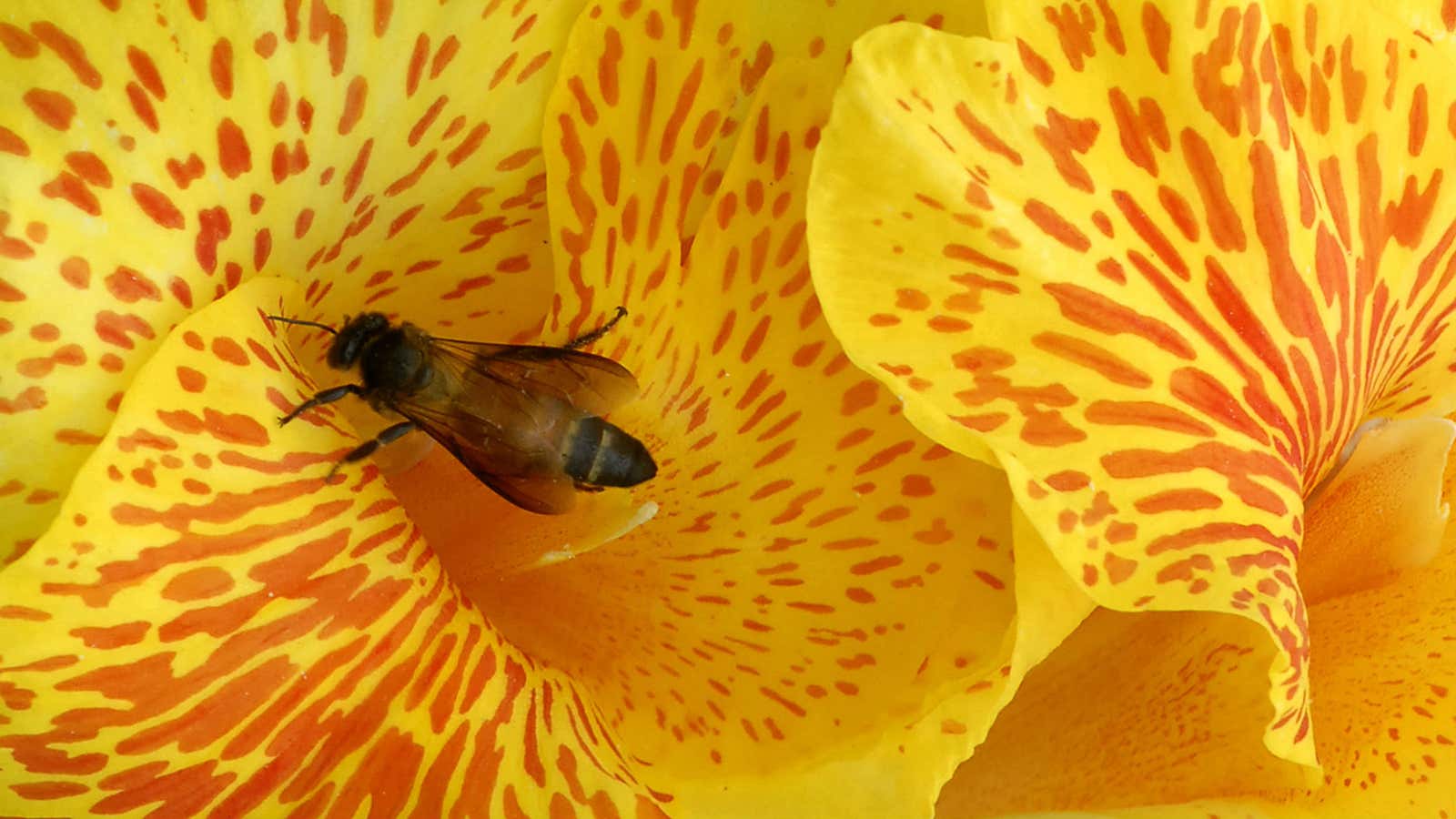In honeybee colonies, royalty isn’t inherited. To become queen, you just need to eat like one.
Honeybee colonies are made up of female workers, drones (male honeybees), and the queen. These insects have a highly developed social structure, with each caste working together for the overall good of the colony.
Whether a female honeybee becomes a queen or a worker depends mostly on diet. Appropriately enough, female larvae that are exclusively fed “royal jelly” (the technical term for special glandular secretions from worker bees) become queens. Other larvae, whose diets all start on royal jelly but after a few days include honey and a mix of pollen and other secretions (known as “bee bread”) become worker bees.
Previous research has predominately dealt with the unique properties of royal jelly. But a new study suggests that instead of so-called nurse bees choosing to crown queens via a special diet, they actively relegate the majority of females to the ranks of workers via”chemical castration.” Until a specific acid is introduced into female bees’ diets, any of them could become a queen. (Sorry, girls!)
In the study, published in Science Advances, researchers from the University of Illinois analyzed the phytochemicals—plant-based chemicals—added to honey and bee bread by nurse bees, and isolated an acid known as p-coumaric acid. This compound wasn’t present in royal jelly.
The researchers then raised two groups of honeybees—one with a royal jelly diet, and the other with the same diet dosed with p-coumaric acid. The bees fed a diet with the acid developed smaller ovaries than those who weren’t, abruptly ending their royal ambitions.
